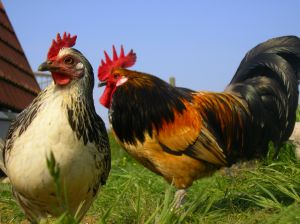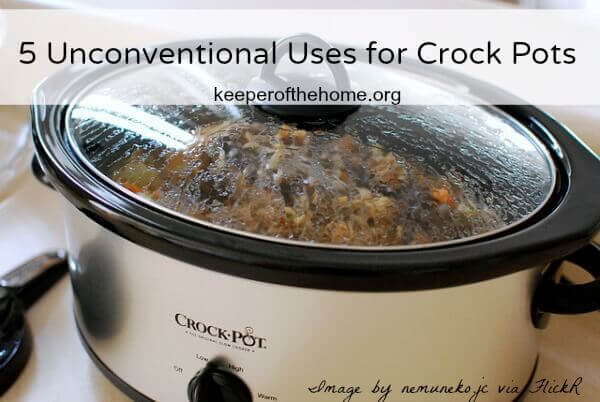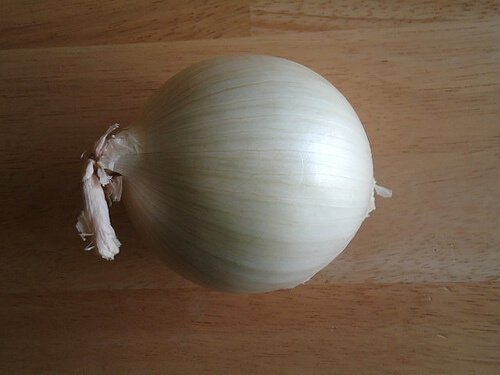Nutritional Foundations- Making the best of the regular grocery store, Part 4

For those new to this series, we're looking at how to do the best you can nutritionally, when a conventional store is what you've got to work with. We're in the midst of a tour of the store, and so far we've worked our way through produce and seafood, and dairy.
Today, we jump into the topic of purchasing meat, poultry and eggs…
Here are a few reasons to be concerned about what's being sold at your regular grocery store:
- Grass fed is preferable for meat, and foraging on grass and insects for poultry, however most animals are cooped up in buildings and not given any access to pasture at all, let alone the ability to freely roam and forage.
- Often antibiotics are given to the animals, for infections that develop in too-tight living conditions (cooped up tightly, usually without naturally light or access to pasture, next to animals that are ill, beaks cut off so they don't eat their neighbors, etc.)
- Some have been given hormones, to force them to grow faster or produce more than they normally would
- All are fed with feed that is sub par (eating things that are not ideal foods for them, such as grain for cattle, rather than hay, silage and root vegetables when fresh grass is not available), often genetically modified (such as corn and soy) and pesticide laced
All in all, it's enough to make you want to seriously reconsider purchasing from the regular store, eating animal products raised in unknown (and often downright terrible) conditions.
I've even more recently seen advertising that makes the packaging look more natural, or using the word "natural" in their brand name or calling it "natural chicken breasts". Unfortunately, this doesn't mean a thing, as there are no true standards for what equals "natural" food. When it comes to meat and poultry, it simply means that there are no artificial colorings, flavorings or preservatives in your chicken breast or roast (well goodness, I would sure hope there aren't!), and has nothing to do with how the meat was produced.
As well, many packages have been touting lovely brown images of grains, promoting this image that anything containing a grain might be healthy. Unfortunately, grain fed animals are NOT the ideal, and just because the package looks "natural" doesn't mean that what's inside it really is. Companies pay big bucks for marketing companies to help them compete in today's market, where more and more consumer are demanding naturally raised foods. As I mentioned above, we want our animals to be raised on pasture, foraging on grass. In the winter, cattle (for example) should be consuming hay (dried grass) and/or silage (fermented grass) or root vegetables. Not grains!
To give you a bit of food for thought, considering reading these articles to go more in depth on the subject:
Health Benefits of Grass-Fed Products
Now that I've told you what you don't want, you may be wondering…
How do I actually find good quality meat to serve my family?
We are most definitely going to get to this question in a few weeks, when I give you as many good resources for finding high quality food sources as I possibly can (and I'm going to ask for your help, by having you share all of your own resources with the rest of us!). Personally, I do not buy it from the regular grocery store, so I am going to help you find out where you can locate a source of good animal products near you!
Is it ever okay to eat this regular meat?
If it is all that you can get, then yes, but less often than you might otherwise. That is simplifying it quite a bit, but that is my basic thought on the subject. If you cannot get better quality meats and poultry, I don't think that you need to take them out of your diet entirely, as I don't really care to promote a vegetarian diet. High quality or not, I don't believe that animal products are to be avoided, as they contain many essential nutrients, including an excellent source of protein. However, they are not nearly as beneficial to you when poorly raised, and when consumed too much, can actually be detrimental to your health, which is why I would caution you to eat less if that is your only option.
In my next post, I'm going to look at a few different brands of meat and poultry, and help you to compare their quality, so that when faced with the meat options at your local store, you can make the best choices possible. You may notice I don't include pork- that's because I don't think that it is a wise choice, nutritionally speaking (if you really want to know why, ask me and I'll post about it sometime- it's far too big for this post!).
What compromises can be made?
Back when we had a whole lot less money in our grocery
budget, I purchased as much good quality animal protein as I could
afford to buy (which wasn't a lot). After that, we went vegetarian (probably 3-5 nights a
week). I stretched what I had through careful meal planning, and
learned how to make complex, interesting and filling vegetarian dishes, with lots of whole grains, beans and legumes, and some dairy and fish. We ate yogurt and high quality eggs with breakfast whenever we could. And that was that. Though we eat much more meat and poultry these days, as our budget allows, I think that our previous diet was very reasonable and we did well with it.
I have also since learned (through Nourishing Traditions) that consuming homemade bone broth (beef, poultry or fish broths) are excellent for diets that are lower in good quality animal protein. They have a protein sparing effect that helps our bodies to make the best use of whatever animal protein we do eat. Adding broths a couple times a week, particularly to vegetarian meals, is an excellent way to get around not having as much meat or poultry.
Another great compromise is to eat meats other than beef, chicken and turkey. Lamb is generally of high quality (not always, but most of the time) no matter where it is found, so that is often a great alternative. As well, if you can find game (buffalo, bison, moose, deer, etc.) these also tend to be good quality, so buy and eat freely! Wild birds, such as wild duck or pheasant, are another option, if you're able to find them.
So, which choices are better than others when I'm in the store and I still want to buy something?
Let me answer that on Friday, with some specifics of what to look for in, brands, websites, etc. I want to get even more practical on this topic and give you some tools to use in this area!






Probably a silly question, but when making the broth, is it OK if it’s not free range chicken? And it it’s not, is it worse to us it for broth!
I recently came across your site and I love it. I have been trying to make changes to get more healthy and you give some great ideas. Thank You!
Kelly, welcome! 🙂
Stacey, yes, it’s ok to make the broth if it’s not free range. You are still getting some of the benefits, such as the gelatin from the bones. But just like with eating the meat, the high quality and better nutrients won’t be there, and there will be some things about it that are not ideal. If that’s the only option you have, though, I would say to still make the broth. The nutrients in it that are good for digestion, building bones, etc. will still be there for the most part.
Hi Stephanie,
thanks so much for this wonderful series – it has been very helpful to me in my quest towards a healthier lifestyle for my family. I was having trouble getting my husband on board with some of the changes (he thinks Coke is a food group, ugh!) but he is right on board with the meat thing. He is an avid hunter and for the first time in our married life I am actually encouraging him to go out and shoot stuff! He shot a deer a couple of weeks ago (don’t worry, he’s not a poacher, he used a bow & arrow)and last night we spent a couple of hours grinding meat and making it into meatballs, hamburger patties and browned meat for casseroles; so now I have a freezer full of healthy “convenience” food, yeah!
I realize that you may have already posted the answer to this but I haven’t had time to go through all your old posts yet so I will ask anyway – do you know of any good Canadian sources for bulk organics? All the American gals seem to order from Azure Standard; is there something similar up here?
Hi Steph,
I heard a rumor that in Canada, the stores are not allowed to sell hormone injected meat. Do you know if this is true, for a fact? I know that in the States, it is a State by State issue.
Thanks for the post, I make broth all the time but will be trying it your way.
We eat less meat so that what we do eat can be as good quality as I can get. I finally found a cheap source for ground beef that is good by asking the farmer if they ever have to clear their freezer- they do to make room for a new cow- and then they discount the beef (I got it for $2 a pound and its organic but not certified). Its hard to find sources for sure. I can find some chickens but its only once a year that I can get them (when they butcher them). I’ve seen organic chickens at the grocery store but they are $$$. I think they are a PC brand. Not sure if that even is good or not. Any thoughts?
Oh I meant to post about one of the comments- about co-ops in Canada. Ontario has the Ontario Natural Food Co-op. Worth looking into but I find some of their prices are higher than the store for the same thing. Many are great prices though too.
SarahMichelle, I really do not know of any good Canadian coops, at least not where I live. There are a few delivery places in the Vancouver area, but they do not sell bulk items for the most part, and they are quite expensive. If anyone knows of any, please enlighten us all! I’ve been looking for a long time!
Jess, as for hormones in Canadian meat, there is some testing that is done and there are upper limits which the hormones levels cannot go beyond or the meat cannot be sold. As well, the animals cannot receive certain drugs, hormones, etc. any more than 6 days before slaughter, so that it is supposedly out of their system. But aside from that, there are many hormones that are approved for use in Canadian meat, and that is actually why our meat is not exported to Europe (they will not import meat that is hormone-tainted). Here’s a good link:
http://www.foodsafetynetwork.ca/en/article-details.php?a=3&c=10&sc=78&id=441
And I really don’t know how it works in the States, so if you’re saying it’s State by State, I believe you. 🙂
Nola, that’s a great way to get a good deal on beef! And I know the PC chickens are a bit pricey, but I would think that the quality is pretty decent, compared to most store stuff. I bet they are still mostly confined and fed grains, but at least there are some standards in how they are raised. I would use them freely, if they fit in your budget, and there’s nothing better available. Thanks for the Ontario coop info!
Simply discovered this blog thru Yahoo, what a pleasant shock!